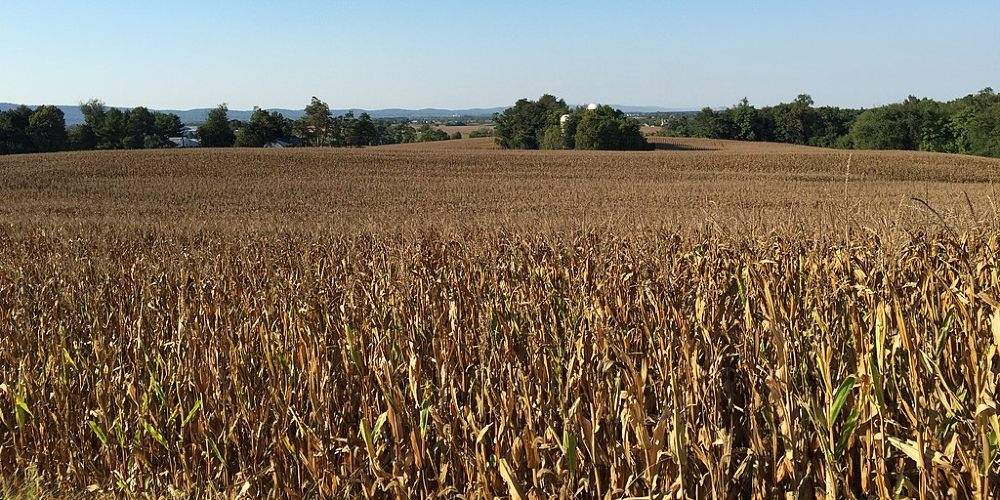- Farmers are going through a fertilizer crisis caused by skyrocketing fossil fuel prices and industry consolidation. Liquid nitrogen, potash and phosphorus, three of the world’s most commonly used fertilizers, have more than doubled in price over the past two years.
A survey conducted by Minnesota-based data analysis firm DTN revealed that fertilizer prices are hitting all-time highs. As of May 1, the average price of liquid nitrogen was $730 per ton, diammonium phosphate was $1,050 per ton and urea was $1,012.
“Fertilizer makes up about 30 percent of the cost of growing an acre of corn,” said Gregory Ibendahl, who teaches farm management at Kansas State University. “But with the fertilizer price increase, now it is closer to 35 percent.”
On March 11, President Joe Biden pledged to tackle the problem in a press conference. He promised that his administration will create a $100-million program to support innovative American-made fertilizers to give U.S. farmers more choices in the marketplace. The U.S. Department of Agriculture (USDA) will invest $500 million to try to lower fertilizer costs by increasing production.
“But since this probably isn’t enough money to construct new fertilizer plants, it is not clear how the money will be spent,” said Kathleen Merrigan, Swette Center for Sustainable Food Systems executive director at Arizona State University.
Also, according to Gary Schnitkey, soybean strategy chair for the Agriculture and Consumer Economics Department at the University of Illinois, farmers don’t have realistic substitutes for fertilizer.
“Nitrogen can be supplied by livestock manures, but those were being used before and there’s not going to be more of a supply of manure,” he said.
Supplements, T-Shirts, and… DAGGERS! Shop at The Alex Jones Store and get essential gear, stick it to the globalists, and keep independent journalism alive in America.Schnitkey further stated that last year, China cut exports of nitrogen fertilizer and Europe shut down nitrogen fertilizer production. He said high natural gas prices in both places made fertilizer production too expensive and several New Orleans-area nitrogen fertilizer plants shut down in the wake of Hurricane Ida, which hit Louisiana last August.
Jason Grant, director of the Center for Agricultural Trade at Virginia Tech, said the massive demand surge and a surge in the price of fuel and natural gas trickled down into fertilizer.
The supply chain was also greatly impacted by the war in Ukraine. Rabobank analysts said Russia exports nearly 20 percent of the world’s nitrogen fertilizers and, combined with Belarus, 40 percent of the world’s exported potassium. (Related: Global food and fertilizer supply crisis gives Russia significant leverage.)
“If fertilizer prices persist, food shortages will undoubtedly follow as farmers cut back to save money,” Grant pointed out.
He further lamented that wealthy countries like the U.S. will surely have the food they need. However, low-income countries that are already experiencing food shortages could see their food supply dwindle even more.
Farmers may turn to recycled urine amid fertilizer shortage
Due to the current global shortages, scientists have been looking for other ways to source fertilizers.
Merrigan, who has held senior positions at the USDA, including deputy secretary of agriculture from 2009 to 2013, stated on her website that producing more synthetic fertilizer should not be the only answer to this serious challenge.
“The U.S. should also provide support for nature-based solutions, including farming practices that help farmers reduce or forgo synthetic fertilizers, and biological products that substitute for harsher chemical inputs,” she said.
This presents an opportunity for a more sustainable way of growing nutrient-rich crops. French researchers found that peecycling (urine recycling) could be the liquid gold alternative to chemical fertilizers.
“Urine could be a nutrient-rich alternative to commercial fertilizers considering that pee is filled with nitrogen, phosphorus, and potassium,” said Fabien Esculier, engineer and coordinator of the French OCAPI research program.
It is a well-known fact that synthetic nitrogen fertilizers boost agricultural production, but they go to river systems and other waterways when they are used in large quantities. This may cause blooms of algae that can kill fish and other aquatic life.
The engineer stated further that human waste is less polluting than synthetic fertilizers, which contain ammonia.
The Rich Earth Institute (REI) is a non-profit organization in Vermont and it has been working on how urine can be recycled and used as a fertilizer in farming for over 10 years now. The workers of the organization collect about 10 thousand gallons a year from volunteers who bottle it at home and then bring it to a “urine depot.”
They also rent out urine-collecting portable toilets for events and supply free funnels in Brattleboro.
Abe Noe-Hays, founder of REI, said using urine as fertilizer is a better approach because it is sustainable. “There is no doubt that urine can be a safe fertilizer for growing any kind of crop,” Noe-Hays narrated in a video produced by University of Michigan researchers.
Visit FertilizerWatch.com for more news related to fertilizer shortages.
Watch the below video that talks about a Biden administration official celebrating the rise in fertilizer prices because it will hurt farmers.
This video is from the NewsClips channel on Brighteon.com.
More related stories:
- Op-ed suggests removing tariffs on fertilizer imports to alleviate high fertilizer prices.
- Mainstream media predictably blames Russia as fertilizer prices reach new highs.
- Midwest farmers struggling due to spiking fertilizer costs.
- Peecycling: Key to alleviating fertilizer shortages.
Sources include:
- Yahoo.com
- AgWeb.com
- FastCompany.com
- TheConversation.com
- News.Yahoo.com
- Leesu.fr
- Brighteon.com
- NATURAL NEWS
- Image by Famartin, CC BY-SA 4.0, via Wikimedia Commons

As We’ve Warned About for Months, Fertilizer Price Hikes Prompt Soaring Food Prices and Global Shortages
The writing has been on the wall since March at the latest. But far too few in government and corporate media have addressed the massive problem that is now hitting us all.
Site Operated By JD Rucker.
© 2023 America First Report.




